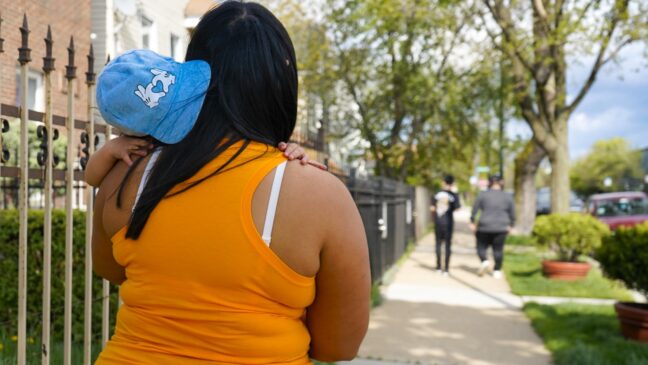By Wendy Wei and Leslie Hurtado, April 29, 2024
While anti-migrant sentiments have been expressed by many Chicagoans of different backgrounds, much media focus has been on the Black community’s historical tension with Latinx communities. However, lifelong Black housing advocates say that the energy spent on anti-migrant protests could be more productively used if it was channeled toward addressing the root causes of housing instability in the city.
According to DePaul’s Institute for Housing Studies, in 2021, before the first bus arrived from Texas, the city was already short 120,000 affordable housing units to accommodate Chicago’s low-income renter households.
That same year, the Chicago Department of Family and Support Services counted 3,000 people in shelters, and 702 sheltering on the street (though this number could be as high as 1,500). 73 percent of this population was Black.
Street homelessness is only part of the picture. In 2021, the Chicago Coalition for the Homeless estimated that 68,440 people were experiencing homelessness in Chicago, with most temporarily staying with others, or “doubling up.” In their report, Black Chicagoans made up more than half of the total population experiencing homelessness.
Hendricks says that frustrations have been brewing since the 2008 Great Recession, and were worsened by the COVID-19 pandemic, during which Black Chicagoans faced severe disparities. Despite constituting about 30 percent of the city’s population, they accounted for 60 percent of its COVID-19 fatalities and a quarter of Illinois’ confirmed cases.
“Because poor people were under a lot of stress and pressure, when they see somebody getting a resource, and they know they’ve been denied some space, they blame those folks and they blame the people who are providing them with those resources. And it becomes a racial tension,” Washington said. “So that’s a misunderstanding of the real situation.We have two crises. A migrant crisis and a housing [crisis].”

